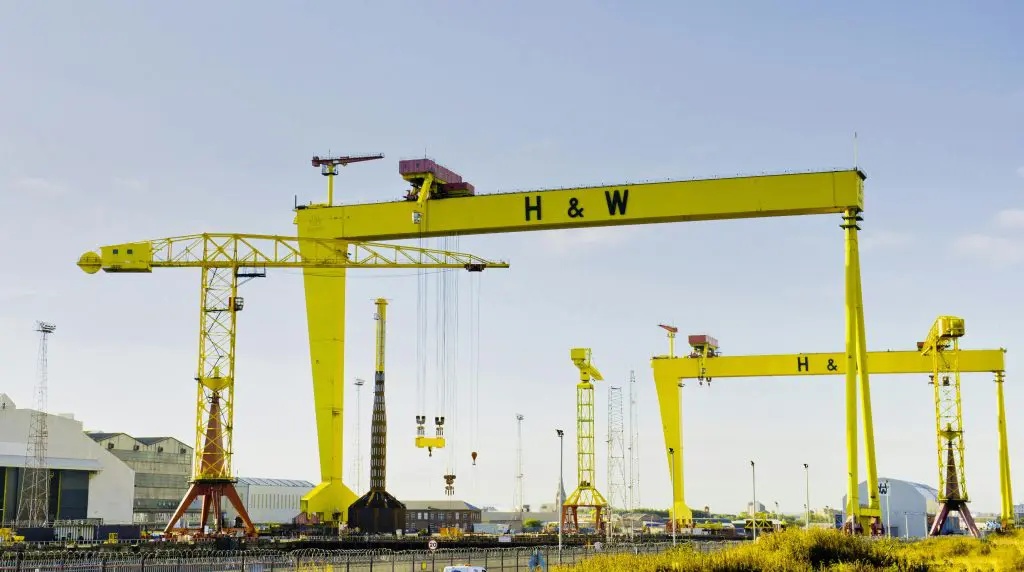
Belfast Harbour Reports 71% Emissions Reduction as It Accelerates Towards Net Zero Belfast Harbour has reported a 71% reduction in Scope 1 and 2 emissions since 2015, according to its newly launched 2024 Environmental, Social & Governance (ESG) Report, which is a major milestone in its mission to become Ireland’s first net zero port operator, […]
Belfast Harbour has reported a 71% reduction in Scope 1 and 2 emissions since 2015, according to its newly launched 2024 Environmental, Social & Governance (ESG) Report, which is a major milestone in its mission to become Ireland’s first net zero port operator, and one of the first in Europe.
The emissions reductions are all the more notable as the port has doubled its business turnover since its 2015 baseline year. Between 2023 and 2024 alone, Belfast Harbour achieved a 35% year-on-year decrease, and is on track to reach a 93% reduction by 2027.
As a Trust Port, Belfast Harbour receives no public funding and reinvests all profits into port infrastructure and the wider Harbour Estate. This self-financing model supports its sustainability goals and ensures that environmental, economic, and social outcomes are aligned for long-term benefit.
Sustained investment in low-carbon technologies has included:
These steps reflect Belfast Harbour’s commitment to supporting circular economy principles, which minimises waste and emissions while maximising reuse, recovery, and renewable resource deployment across its operations.
A trust port is a type of port in the UK and Ireland that is independently managed for the benefit of all stakeholders (including port users, local communities, employees, and the environment) rather than shareholders or private owners.
The ESG Report highlights the port’s leadership across a range of sustainability and social initiatives:
Belfast Harbour also retained top-tier recognition for responsible business, including:
These efforts underscore the port’s role not just as an economic driver, but as a community-focused anchor institution supporting inclusion, education, and environmental stewardship.
Commenting on the report’s findings, Dr Theresa Donaldson, Chair of Belfast Harbour Commissioners, said:
‘This report marks another year of strong progress across ESG and DEI initiatives and the Board is determined that Belfast Harbour continues its transformative leadership in this space. As one of only five organisations in Northern Ireland with BITC Responsible Business Platinum standard, we are delighted that our efforts continue to be recognised.’
Joe O’Neill, Chief Executive of Belfast Harbour, added:
‘ESG is fundamental to our long-term planning and operational decision-making. It shapes our partnerships, informs our investments, and supports the delivery of our wider ambitions as a Trust Port. 2024 has seen our ESG journey step to another level especially in terms of our emissions reductions. We remain on track to be the first net zero port operator in the UK and on the island of Ireland.’
Belfast Harbour’s progress is setting a precedent for other ports across the UK and Europe. As global maritime industries come under increasing pressure to decarbonise, the port’s five-year strategy and 25-year masterplan are already demonstrating how emissions reductions, sustainable infrastructure, and economic growth can coexist.
Belfast Harbour’s progress feeds into wider Northern Ireland circular economy strategies, which focus on reducing landfill reliance, decarbonising key sectors, and improving materials recovery infrastructure. By embracing electric vehicles, renewable power, and biofuels, the Harbour is also helping to cut embedded carbon in supply chains and support clean logistics hubs.
The Harbour’s sustainability investments provide an important model for other public and private bodies across the region, showing how climate action can generate economic opportunity, attract green innovation, and reduce resource consumption across lifecycles.
While not yet fully net zero across all emissions scopes, Belfast Harbour’s 71% reduction in operational emissions (Scopes 1 and 2) is a powerful signal of intent and a firm foundation for the work ahead. As the port continues to decarbonise its wider ecosystem and support green maritime innovation, it is redefining what leadership looks like in a traditionally carbon-intensive industry.
By aligning its environmental goals with social responsibility, circular economy principles, and strategic investment, Belfast Harbour is proving that ports can play a central role in building a more sustainable and inclusive future, not only for Belfast, but for the wider region and beyond.
At All-Ireland Sustainability, we’re committed to building a greener, fairer island—together. Stay informed on the latest environmental initiatives, community action, and policy developments shaping sustainability across Ireland, North and South.
👉 Sign up for our newsletter today and be the first to hear about upcoming events, expert insights, and ways to get involved.
Whether you’re a seasoned advocate or just starting your journey, new members are always welcome—your voice matters.
Subscribe now and be part of the All-Ireland Sustainability network.